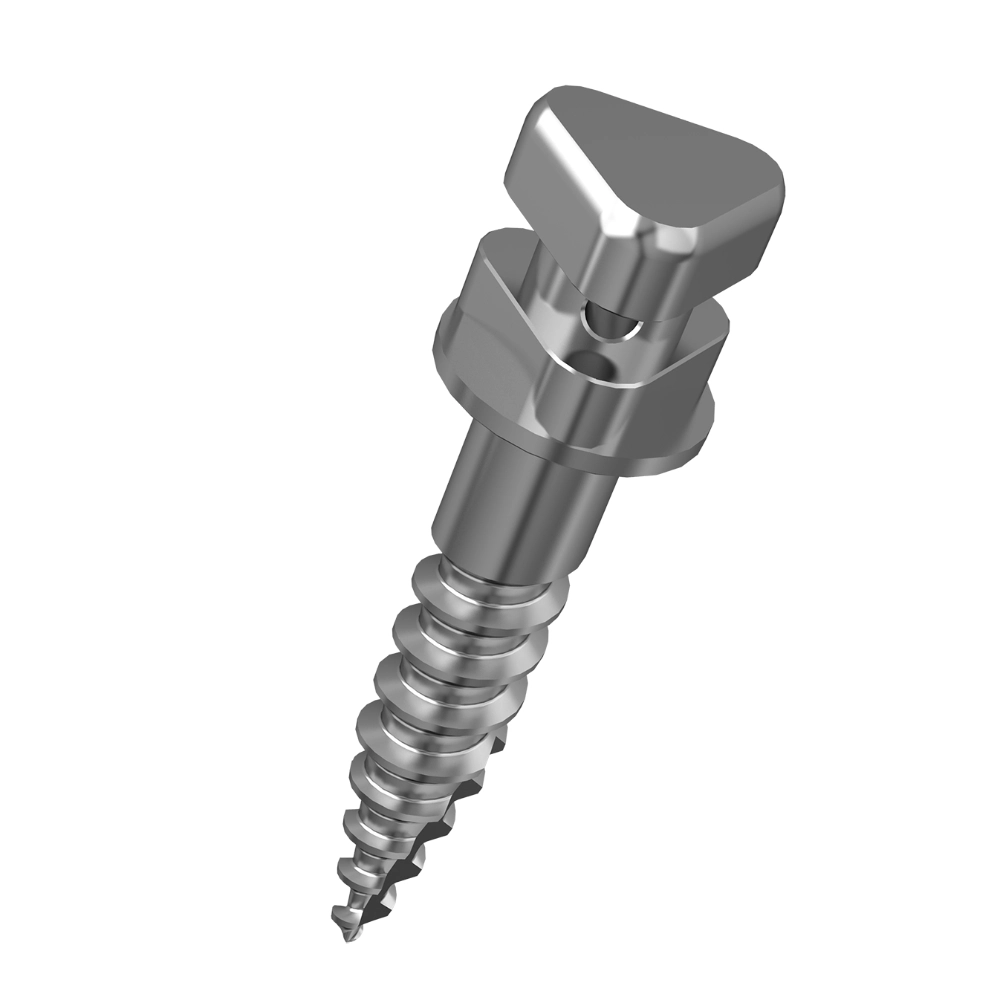
Dans le domaine de la dentisterie moderne, la chirurgie des implants dentaires joue un rôle crucial en tant que technique de restauration avancée. Elle offre non seulement aux patients une solution efficace pour restaurer la fonction des dents perdues, mais elle améliore également de manière significative leur qualité de vie en général. Les dents manquantes peuvent affecter non seulement la fonction de mastication et la santé bucco-dentaire, mais aussi la confiance en soi et les interactions sociales. Grâce à l'intégration de racines dentaires artificielles dans l'os de la mâchoire, la chirurgie des implants dentaires permet une restauration stable, permettant aux patients de retrouver leur fonction buccale et leur esthétique, d'apprécier à nouveau la nourriture, de sourire en toute confiance et de participer activement à des activités sociales.
Toutefois, la réussite et la sécurité de la chirurgie implantaire dépendent en grande partie du choix d'un professionnel dentaire hautement qualifié et expérimenté. Un dentiste spécialisé dans les implants dentaires possède non seulement des connaissances théoriques approfondies et d'excellentes compétences chirurgicales, mais il peut également élaborer un plan de traitement personnalisé en fonction de l'état spécifique du patient. Cela garantit un processus chirurgical sans heurts et la stabilité à long terme des résultats. Par conséquent, avant de subir une opération d'implantation dentaire, les patients doivent choisir soigneusement leur chirurgien afin de garantir à la fois la sécurité et la réussite de l'opération, et de bénéficier en fin de compte de l'amélioration de la qualité de vie que procurent les implants dentaires.
Professionnels dentaires impliqués dans la chirurgie implantaire
Implantologue
Un implantologue est un spécialiste de la chirurgie des implants dentaires. Grâce à sa grande expérience et à ses compétences approfondies, il a obtenu des résultats remarquables dans le domaine de l'implantologie. Ces professionnels sont généralement titulaires d'un diplôme d'études supérieures en dentisterie implantaire, ce qui signifie qu'ils ont suivi un enseignement et une formation systématiques dans ce domaine. Ils connaissent non seulement les techniques et les matériaux d'implantologie les plus récents, mais ils peuvent également élaborer des plans de traitement personnalisés en fonction de l'état spécifique de chaque patient, garantissant ainsi la sécurité et la réussite de l'intervention.
Chirurgie buccale et maxillo-faciale
Les chirurgiens buccaux et maxillo-faciaux sont spécialisés dans les chirurgies complexes concernant la bouche et la région faciale. Ils excellent dans le traitement des cas difficiles, notamment les procédures d'implantation dentaire qui nécessitent une greffe osseuse ou d'autres interventions chirurgicales avancées. Leur implication dans la chirurgie implantaire permet de garantir une procédure sans heurts tout en minimisant les risques chirurgicaux. Leur expertise et leurs compétences chirurgicales constituent une base solide pour la réussite des traitements par implants dentaires.
Parodontiste
Un parodontiste est un expert de la santé des gencives et des structures de soutien des dents. Dans la chirurgie des implants dentaires, la santé parodontale est un facteur crucial de réussite. Par conséquent, lorsqu'un patient a besoin d'une évaluation et d'un traitement parodontal, un parodontiste peut être impliqué dans le processus d'implantation. Grâce à des soins et à un entretien professionnels, il contribue à garantir la santé des gencives, jetant ainsi des bases solides pour la stabilité et l'esthétique à long terme des implants dentaires.
Prosthodontiste
Le prosthodontiste est spécialisé dans la conception et la mise en place des restaurations, telles que les couronnes, dans le cadre des procédures d'implantation dentaire. Il travaille en étroite collaboration avec les implantologues pour mener à bien l'ensemble du processus de traitement implantaire. L'expertise et le sens esthétique du prosthodontiste sont essentiels pour garantir à la fois la fonctionnalité et l'apparence de l'implant. En adaptant les restaurations à la structure buccale et aux préférences esthétiques de chaque patient, ils aident les patients à retrouver un sourire naturel et magnifique.
Comment les patients peuvent-ils choisir le bon dentiste ?
Avant tout, les patients doivent effectuer des recherches et des consultations approfondies. Ils peuvent se renseigner sur les dentistes en consultant les sites web officiels, les plateformes médicales et les associations professionnelles afin de connaître leur formation, leurs qualifications professionnelles et leur expérience clinique. Lors d'une première consultation, les patients peuvent également évaluer le professionnalisme du dentiste et ses compétences en matière de communication afin de déterminer s'ils correspondent à leurs attentes et à leurs besoins.
Lors de la consultation, il est important que les patients posent des questions clés, telles que le niveau d'études et de formation du dentiste, son expérience dans des cas similaires, les taux de réussite des procédures et les risques potentiels encourus. Ces questions aident les patients à se faire une idée précise de l'expertise du dentiste et de la sécurité de la procédure.
En outre, l'évaluation des installations de la clinique est une autre étape cruciale dans le choix du bon dentiste. Les patients doivent prêter attention aux normes d'hygiène de la clinique, à la modernité de son équipement, ainsi qu'au professionnalisme et à la qualité du service du personnel. Une clinique propre, bien équipée et dotée d'une équipe professionnelle et attentive est plus à même de fournir un traitement et des soins de qualité supérieure.
En conclusion, le choix du bon dentiste pour la pose d'implants dentaires nécessite des recherches, des consultations et des évaluations approfondies. En prenant ces mesures, les patients peuvent s'assurer d'une procédure réussie et sûre, ce qui leur permettra d'obtenir de meilleurs résultats thérapeutiques et une meilleure qualité de vie.
Facteurs clés de la réussite des implants dentaires
La réussite des implants dentaires est influencée par plusieurs facteurs critiques qui jouent un rôle essentiel dans la détermination du résultat global. Ces facteurs doivent être soigneusement pris en compte pour garantir un implant dentaire durable et efficace.
Évaluation du prétraitement
Une évaluation complète de la santé bucco-dentaire et de la structure osseuse du patient est essentielle avant de procéder à la pose d'implants dentaires. Cette évaluation comprend un examen approfondi des maladies gingivales, de l'adéquation de l'os et de la santé dentaire en général, afin de déterminer si le patient est un bon candidat pour les implants. Grâce à cette évaluation, le dentiste peut élaborer un plan de traitement personnalisé afin d'améliorer le taux de réussite de la procédure.
Qualité et densité des os
La solidité et la densité de l'os de la mâchoire sont parmi les facteurs les plus importants qui influencent la réussite de l'implantation. Un volume et une résistance osseuse suffisants constituent une base stable pour l'implant, garantissant sa stabilité et sa fonctionnalité à long terme. Dans les cas où un patient présente un volume osseux insuffisant ou une faible densité osseuse, une greffe osseuse peut être nécessaire avant la pose de l'implant afin d'améliorer le soutien osseux et les chances de réussite.
Soins post-opératoires
Des soins post-opératoires appropriés ont un impact significatif sur la longévité et le succès des implants dentaires. Les patients doivent suivre les instructions de leur dentiste et maintenir une bonne hygiène bucco-dentaire, notamment en se brossant régulièrement les dents, en utilisant du fil dentaire et des bains de bouche pour prévenir les infections et les inflammations. En outre, les visites de suivi de routine sont essentielles pour contrôler la santé et la stabilité des implants, ce qui permet au dentiste de prendre les mesures d'entretien nécessaires, le cas échéant.
En tenant compte de ces facteurs et en suivant les recommandations des professionnels, les patients peuvent maximiser le taux de réussite de leurs implants dentaires et bénéficier d'une santé bucco-dentaire à long terme.
Évaluer les qualifications d'un dentiste implanteur professionnel
Lors de la sélection d'un dentiste spécialiste des implants, il est essentiel de tenir compte de sa formation, de ses références professionnelles, de son expérience clinique et des commentaires de ses patients afin de garantir un traitement sûr et de qualité.
Formation
- Éducation dentaire formelle : Un dentiste qualifié doit être titulaire d'une licence ou d'un diplôme supérieur en dentisterie, ce qui garantit qu'il a reçu une éducation et une formation systématiques en médecine dentaire.
- Formation spécialisée sur les implants : Outre la formation dentaire de base, le dentiste doit avoir suivi une formation spécialisée en implantologie ou des études avancées afin de se tenir au courant des techniques et concepts les plus récents dans ce domaine.
Titres de compétences professionnelles
- Licence médicale en cours de validité : Le dentiste doit posséder une licence médicale valide, qui sert de preuve de son autorisation légale d'exercer.
- Certifications spécialisées : Dans le domaine de la dentisterie implantaire, les dentistes peuvent être titulaires de certifications ou d'adhésions pertinentes, telles que celles de l'International Team for Implantology (ITI), démontrant leur expertise et leur reconnaissance dans le domaine de l'implantologie.
Expérience clinique
- Vaste expérience chirurgicale : Un dentiste qualifié pour les implants doit avoir des années d'expérience en matière de chirurgie implantaire, ce qui lui permet de traiter efficacement les cas complexes.
- Des cas réussis : L'examen du nombre et de la complexité des cas d'implantations réussies peut aider à évaluer la capacité du dentiste à gérer les différentes conditions du patient.
Avis des patients
- Rétroaction des patients : La lecture d'avis et de témoignages d'anciens patients peut donner des indications sur la qualité des services du dentiste, ses compétences en matière de communication et les soins post-opératoires.
- Le souci du détail : Lorsque vous évaluez les commentaires des patients, concentrez-vous sur des aspects tels que le professionnalisme du dentiste, sa capacité à communiquer et son engagement à fournir des soins après le traitement, car ces facteurs indiquent s'il est en mesure de fournir un service complet et attentif.
En évaluant soigneusement ces facteurs, les patients peuvent choisir un dentiste spécialisé dans les implants qui garantit à la fois la sécurité et d'excellents résultats thérapeutiques.
FAQ
Q1 : Quel type de dentiste convient le mieux pour les implants ?
A : Les chirurgiens buccaux sont généralement les mieux placés pour pratiquer la chirurgie des implants dentaires. Ils disposent d'une expertise spécialisée dans la gestion des procédures buccales et maxillo-faciales complexes, y compris les techniques précises requises pour la pose d'implants, telles que la réalisation d'incisions dans les gencives et l'insertion de l'implant dans l'os de la mâchoire. En outre, les chirurgiens buccaux ont une grande expérience de la gestion des cas compliqués, tels que les greffes osseuses et les élévations de sinus, qui sont parfois nécessaires à la réussite de la pose d'un implant.
Q2 : Un parodontiste ou un chirurgien buccal est-il plus indiqué pour les implants ?
A : Comme indiqué plus haut, les chirurgiens buccaux sont généralement mieux adaptés aux procédures d'implantation dentaire. Alors que les parodontistes sont spécialisés dans le traitement des maladies des gencives et la préservation des dents naturelles, la chirurgie implantaire requiert des compétences chirurgicales avancées et une compréhension approfondie des structures maxillo-faciales, domaines dans lesquels les chirurgiens buccaux excellent. Toutefois, dans la pratique clinique, les parodontistes et les chirurgiens buccaux peuvent travailler ensemble pour garantir les meilleurs résultats aux patients, en particulier dans les cas impliquant à la fois la santé parodontale et la pose d'implants.
Q3 : Qu'est-ce que la règle des 3/2 pour les implants dentaires ?
A : La règle des 3/2 est une ligne directrice pour le positionnement tridimensionnel idéal des implants dentaires. La composante "3A" se rapporte à la profondeur verticale, ce qui signifie que l'implant doit être placé 3 mm sous le bord de la couronne (ou 3 mm sous la jonction cément-émail des dents adjacentes). La composante "2B" concerne la largeur horizontale, c'est-à-dire qu'il doit y avoir au moins 2 mm d'épaisseur d'os du côté buccal de l'implant. Ce principe permet d'assurer la stabilité et le succès à long terme de l'implant.
Q4 : Qui doit pratiquer la chirurgie des implants dentaires ?
A : La pose d'implants dentaires est principalement recommandée pour les personnes suivantes :
- Les patients qui ont perdu une ou plusieurs dents en raison d'une carie, d'une maladie parodontale ou d'un traumatisme.
- Patients ayant des dents déchaussées qui ne peuvent être conservées malgré un traitement parodontal.
- Les patients présentant une résorption de l'os de la mâchoire et ayant subi des procédures d'augmentation osseuse pour soutenir les implants.
- Les patients qui ont des difficultés avec les prothèses amovibles en raison de problèmes tels qu'une mauvaise rétention ou des problèmes de muqueuse buccale.
En outre, les candidats doivent être en bonne santé, pouvoir tolérer l'intervention chirurgicale et s'engager à suivre les instructions de soins postopératoires. Un examen et une évaluation bucco-dentaires approfondis sont nécessaires pour déterminer si un patient peut bénéficier d'une restauration par implant dentaire.
Conclusion
Le choix du bon professionnel pour la chirurgie des implants dentaires est crucial, car il a un impact direct sur le taux de réussite de l'intervention, la santé bucco-dentaire du patient et sa satisfaction à long terme. Un chirurgien buccal expérimenté et hautement qualifié peut évaluer avec précision l'état buccal du patient, élaborer un plan de traitement personnalisé et appliquer des techniques chirurgicales précises pour assurer la stabilité de l'implant et la restauration fonctionnelle.
C'est pourquoi, avant d'avoir recours à la chirurgie implantaire, les patients doivent effectuer des recherches et des consultations approfondies afin d'évaluer les qualifications, l'expérience et les avis des patients des différents dentistes. En prenant une décision éclairée et en coopérant activement avec leur équipe dentaire, les patients peuvent obtenir les meilleurs résultats possibles et retrouver un sourire confiant.
Vous êtes à la recherche d'un fabricant d'implants dentaires? DentalMaster est votre meilleur choix.








